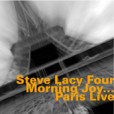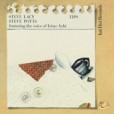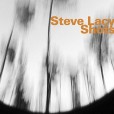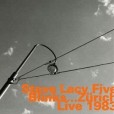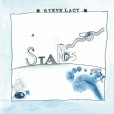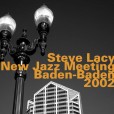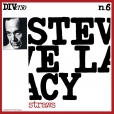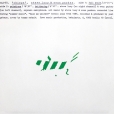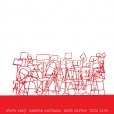Your basket is empty

Solo saxophone performances of three of Lacy’s rarest cycles. The eight-part Shots is from a 1977 Roman concert (with a couple of adds); the rest from a 1980 solo recording session and concert in the lively acoustics of an old church in Porrentruy in Switzerland. Only the 37-minute Hedges has appeared before (on a long out-of-print Hathut from 1982).
From 1986: half Lacy’s stuff — including Wickets — half Monk’s, including a great In Walked Bud. Oliver Johnson and Jean-Jacques Avenal make a superb rhythm section, pulsating, bristling, always moving on; Steve Potts squalls and testifies like a post-Trane trooper; Lacy is a livewire, darting and alight. Don’t potter off before before the finale, As Usual: it’s triumphant.
Utterly captivating settings for soprano and alto saxophone — Lacy and Steve Potts terrifically on song — of Georges Braques’ bons mots. With Irene Aebi.
Recorded in 1979 by Jef Gilson.
The first CvsD re-release of Lacy’s full Hat Hut oeuvre, mastered from the original tapes.
Soprano saxophone; traditional Japanese percussion. ‘Something quite different… A simultaneous atmosphere of interaction and independence. I can’t say that I’ve heard anything else like it,’ says John Corbett.
On fire, live in Zurich in 1983.
‘Performed in Berlin at the Haus am Waldsee in July, 1985, it was every bit the chamber concert — super intimate and interactive, gorgeously recorded by FMP’s Jost Gebers in an ideal acoustic room. Rather than alternate between one and the other, Lacy and Parker explore middle-terrain the whole time, perhaps skewing a tad more Lacy’s funky-tuneful direction, becoming a single soprano entity made of fragments of sound sometimes accreting into perfectly imperfect lines. Two long tracks, Full Scale and Relations, are completed by a final four-minute coda aptly titled Twittering. Indeed, the whole program has the joyous interactivity of Paul Klee’s painting Twittering Machine: birds aligned on a line, proposing and picking up lines, nothing cruel or mean-spirited, free play all a graceful twitter.’

